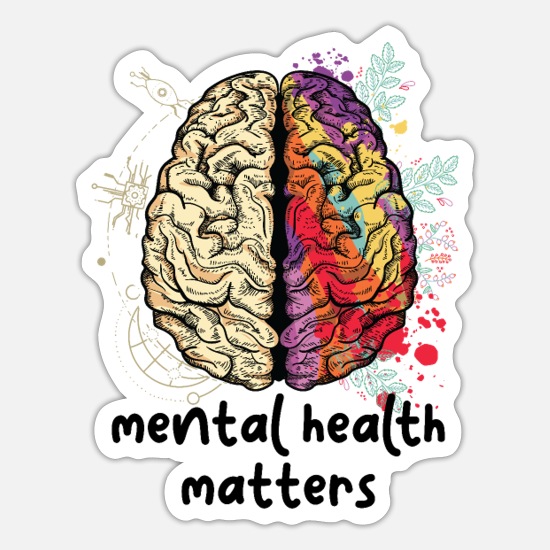How to Build Emotional Resilience: Tools for Navigating Life’s Mental Health Challenges

Emotional resilience is a crucial skill that allows individuals to navigate life’s ups and downs with greater ease and adaptability. In the face of mental health challenges, emotional resilience can provide a buffer, enabling people to bounce back from setbacks, cope with stress, and maintain their well-being. But what exactly is emotional resilience, and how can it be developed?
This article will explore the concept of emotional resilience, its importance in maintaining mental health, and practical tools that can be used to strengthen it. By building emotional resilience, individuals can better handle life’s challenges, reducing the impact of stress and fostering a more balanced, mentally healthy life.
What is Emotional Resilience?
Emotional resilience refers to the ability to adapt to stressful situations, adversity, and hardship while maintaining a positive outlook. It’s not about avoiding challenges or pretending that everything is fine, but rather about learning to cope effectively with difficulties and recover from setbacks.
Resilient people are not immune to stress, trauma, or emotional pain, but they have developed ways to manage these emotions and keep moving forward. Resilience involves flexibility in thinking, an ability to regulate emotions, and a strong support network.
The Importance of Emotional Resilience in Mental Health
Life is full of challenges, and mental health issues can arise from various stressors such as work pressures, relationship problems, financial struggles, or health concerns. Emotional resilience plays a key role in how individuals respond to these challenges. When mental health is fragile, it can be easy to feel overwhelmed by stress, anxiety, or depression. However, with emotional resilience, individuals are better equipped to handle these feelings and maintain their mental well-being.
Emotional resilience acts as a buffer against mental health problems, reducing the risk of long-term psychological harm. It helps individuals to:
Adapt to change:
Resilient people can adjust to life’s transitions, such as job changes, loss, or personal challenges, without being derailed by them.
Manage stress:
Resilience allows individuals to face stressful situations with a sense of control, reducing the impact of stress on their mental health.
Improve relationships
Emotional resilience enhances communication, problem-solving skills, and empathy, fostering stronger relationships.
Recover from setbacks
Resilience enables individuals to learn from failures and setbacks, rather than being paralyzed by them.
Building Emotional Resilience: Practical Tools
While some people may naturally be more resilient, emotional resilience is not an innate trait—it can be developed. There are several strategies and tools that individuals can use to build their resilience and strengthen their ability to cope with mental health challenges.
Cultivate a Positive Mindset
Resilient people often have a positive outlook on life, which helps them deal with adversity in a constructive way. Cultivating a positive mindset doesn’t mean ignoring negative emotions or pretending that challenges don’t exist. Instead, it involves shifting your perspective to focus on what you can control and what you can learn from difficult situations.
Practice gratitude:
Keeping a gratitude journal or regularly reflecting on things you’re thankful for can help shift your focus from what’s wrong to what’s right in your life.
Reframe challenges:
Instead of seeing obstacles as insurmountable, try to view them as opportunities for growth and learning.
Develop Emotional Awareness
Understanding and managing your emotions is a key component of resilience. Emotional awareness allows you to recognize what you’re feeling, why you’re feeling it, and how it’s affecting your behavior.
Practice mindfulness:
Mindfulness techniques, such as meditation and deep breathing, can help increase emotional awareness by encouraging you to be present and attuned to your emotions without judgment.
Identify triggers:
Understanding what situations or experiences trigger negative emotions can help you anticipate and manage these responses more effectively.
Strengthen Problem-Solving Skills
Resilient individuals tend to be proactive problem solvers. Rather than feeling helpless in the face of adversity, they seek out solutions and take action.
Break problems into manageable steps:
When faced with a challenge, break it down into smaller, more manageable tasks. This can prevent feelings of overwhelm and help you stay focused on solutions.
Focus on what you can control:
Accept that some situations are beyond your control. Instead of fixating on what you can’t change, focus on what you can influence.
Build a Strong Support System
Having a network of supportive friends, family, or colleagues is essential for building emotional resilience. A strong support system provides emotional backing during tough times, offers perspective, and helps alleviate feelings of isolation.
Nurture relationships
Invest time and energy in maintaining positive relationships. Whether it’s friends, family, or a support group, having people you can turn to for help can make all the difference when life gets tough.
Ask for help:
Don’t be afraid to reach out when you’re struggling. Sometimes just talking about your challenges with someone who cares can help you process your emotions and feel less burdened.
Practice Self-Care
Self-care is an essential part of resilience, as it helps protect both your mental and physical health. Engaging in activities that nourish your body and mind can build the stamina needed to face challenges with strength and clarity.
Maintain physical health:
Regular exercise, a healthy diet, and sufficient sleep are key components of resilience. Physical well-being and mental health are closely connected, so taking care of your body can help bolster your emotional resilience.
Set boundaries:
Learning to say no and setting healthy boundaries in relationships and work can prevent burnout and preserve your mental health.
Foster Flexibility and Adaptability
Life is full of unexpected twists and turns, and resilient individuals are those who can adapt to change rather than resist it. Flexibility in thinking and behavior allows you to adjust to new circumstances without losing your footing.
Be open to new experiences:
Cultivate a mindset of curiosity and openness to change. Instead of fearing the unknown, approach new situations with an attitude of learning and growth.
Practice acceptance
Accepting that change is a natural part of life can reduce the resistance and stress that often accompany unexpected challenges.
Develop a Sense of Purpose
Having a sense of purpose or meaning in life can provide direction and motivation during difficult times. People who feel connected to a larger purpose are often more resilient, as they are driven by a sense of meaning that transcends the immediate challenges they face.
Set meaningful goals
Establishing long-term goals that align with your values can provide a sense of direction and purpose. These goals can serve as a motivating force when you’re faced with adversity.
Contribute to others:
Engaging in acts of kindness or contributing to causes you care about can enhance your sense of purpose and resilience.
Embrace Failure as a Learning Opportunity
Resilient individuals view failure as a natural part of the learning process, rather than as a defining event. By shifting your mindset to see failure as an opportunity for growth, you can develop resilience and a greater ability to navigate setbacks.
Learn from mistakes:
Reflect on what went wrong and what can be improved next time. This mindset of continuous learning can turn challenges into valuable lessons.
Stay persistent:
Even when setbacks occur, resilience means having the persistence to keep going and trying again.
The Journey to Emotional Resilience
Building emotional resilience is not an overnight process, but a journey of personal growth and self-awareness. By developing resilience, individuals can navigate life’s mental health challenges with greater strength, confidence, and adaptability. Each setback becomes an opportunity to learn, grow, and emerge stronger, leading to a more balanced and mentally healthy life.





